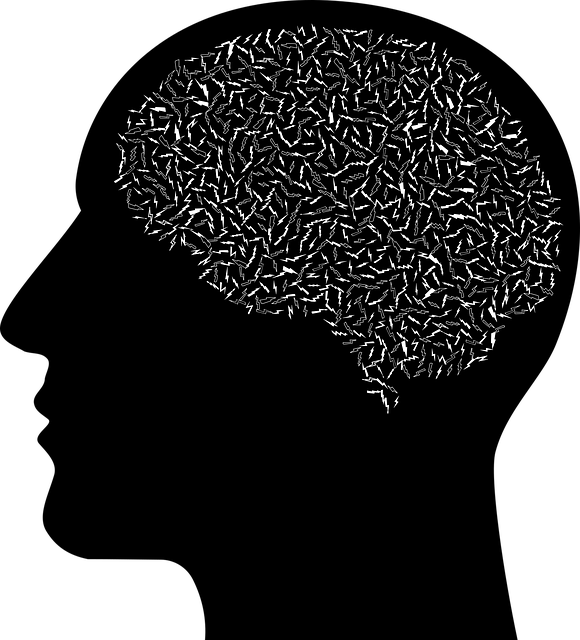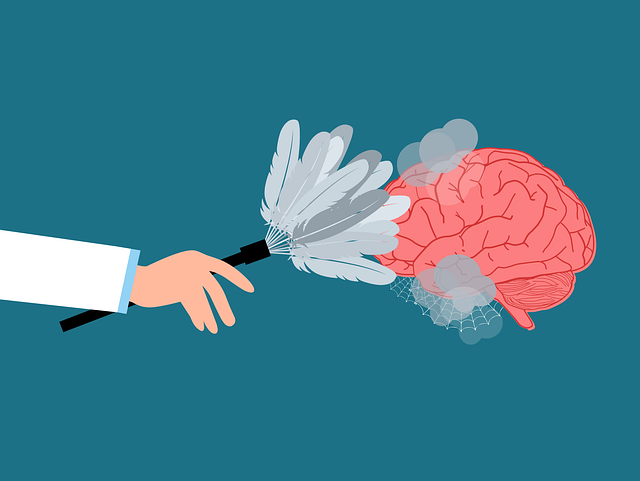Resilience, enhanced by superior spiritual-religious issues therapy (SSRIT), is key to confronting life's challenges. The RFM framework integrates resilience, faith, and meaning through practices like meditation, prayer, and community engagement, fostering calm, hope, and optimism. This holistic approach, backed by mental wellness podcasts and coaching programs, prevents depression and promotes overall well-being. SSRIT, combined with professional trauma support, strengthens individuals' inner resources and adaptability, offering effective strategies for building resilience and enhancing mental health.
“Uncover the power of RFM—a dynamic framework for enhancing resilience through spiritual and religious practices. In today’s fast-paced world, building mental fortitude is essential, and this comprehensive guide explores effective strategies. We delve into the role of faith and consciousness in fostering adaptability, offering a holistic approach to well-being. From understanding RFM’s core principles to practical exercises, this article equips readers with tools to navigate life’s challenges. Discover how integrating spiritual-religious issues therapy can lead to superior resilience and personal growth.”
- Understanding RFM: A Framework for Resilience
- The Role of Spiritual and Religious Practices in Building Resilience
- Effective Resilience-Building Exercises: A Comprehensive Guide
- Integrating RFM into Personal Growth and Wellbeing Strategies
Understanding RFM: A Framework for Resilience

Resilience is a critical component of mental wellness, enabling individuals to navigate life’s challenges and adversity with strength and adaptability. RFM, or Resilience, Faith, and Meaning framework, offers a holistic approach to building resilience by addressing superior spiritual-religious issues therapy alongside emotional healing processes. This integrated perspective recognizes the profound impact that faith and purpose can have on an individual’s ability to cope with stress, trauma, and difficult life circumstances.
By engaging in RFM exercises, individuals can tap into their inner resources, cultivate a sense of meaning and purpose, and strengthen their faith or spiritual connections. These practices facilitate emotional healing processes, fostering a sense of calm, hope, and optimism even amidst challenging situations. Whether through meditation, prayer, or connecting with like-minded communities, the RFM framework encourages individuals to explore mental wellness podcast series production as a means to deepen their understanding and application of resilience-building techniques, ultimately contributing to depression prevention and improved overall well-being.
The Role of Spiritual and Religious Practices in Building Resilience

Spiritual and religious practices have long been recognized as powerful tools for building resilience and fostering mental wellness. Incorporating superior spiritual-religious issues therapy into one’s routine can significantly enhance an individual’s ability to cope with stress, trauma, and adversity. These practices offer a sense of purpose, hope, and connection, which are essential components in navigating life’s challenges. Faith-based communities also provide social support networks that encourage open dialogue, empathy, and understanding, thereby strengthening an individual’s overall resilience.
In today’s fast-paced world, mental wellness coaching programs development often incorporates these spiritual dimensions to offer a holistic approach to healthcare. Mood management becomes more effective when individuals can tap into their inner strength and resilience through prayer, meditation, or rituals that align with their religious beliefs. Moreover, healthcare provider cultural competency training recognizes the significance of spiritual care in clinical settings, ensuring that professionals are equipped to address the needs of patients from diverse backgrounds, including those who rely on faith-based practices for resilience building.
Effective Resilience-Building Exercises: A Comprehensive Guide

Resilience is a powerful tool for navigating life’s challenges and overcoming adversity. Effective resilience-building exercises go beyond mere motivation; they provide individuals with practical strategies to strengthen their inner fortitude, fostering adaptability and emotional agility. A comprehensive guide to these exercises should encompass a multi-faceted approach, addressing physical, mental, and spiritual well-being. Engaging in activities that promote self-care, mindfulness, and profound reflection can significantly enhance one’s resilience, enabling them to bounce back from setbacks with renewed vigor.
For those seeking superior spiritual-religious issues therapy, integrating faith or philosophical beliefs into resilience exercises can offer profound benefits. Practices such as meditation, prayer, or engaging in nature walks, when coupled with professional Trauma Support Services, have been shown to boost Inner Strength Development. By combining traditional therapy methods with these spiritual or religious practices, individuals can tap into a deeper wellspring of resilience, fostering not just recovery from past traumas but also preventing burnout and promoting long-term mental health.
Integrating RFM into Personal Growth and Wellbeing Strategies

Integrating RFM (Resilience, Flexibility, and Mindfulness) into personal growth and wellbeing strategies is a powerful approach to enhancing mental wellness. This holistic framework goes beyond traditional therapy by addressing superior spiritual-religious issues, thereby fostering a deeper sense of resilience and emotional balance. By incorporating practices such as meditation, mindful breathing, and conflict resolution techniques, individuals can navigate life’s challenges with greater equanimity.
The RFM model encourages community outreach program implementation, where people come together to support one another. This social aspect is vital for building resilience, as it promotes a sense of belonging and connects individuals to a network of like-minded individuals interested in personal growth. Through shared experiences and collaborative problem-solving, participants can develop effective conflict resolution skills, leading to improved relationships and overall mental wellness.
Resilience is a powerful tool for navigating life’s challenges, and integrating Religious and Spiritual Matters (RFM) into one’s routine can significantly enhance this. As discussed, understanding RFM as a framework and employing effective resilience-building exercises can foster a deeper sense of well-being. By combining spiritual practices with evidence-based strategies, individuals can develop a robust coping mechanism that promotes personal growth and enhances overall mental health. Embracing these practices is a game-changer in the realm of superior spiritual-religious issues therapy, offering folks a means to thrive amidst life’s storms.














